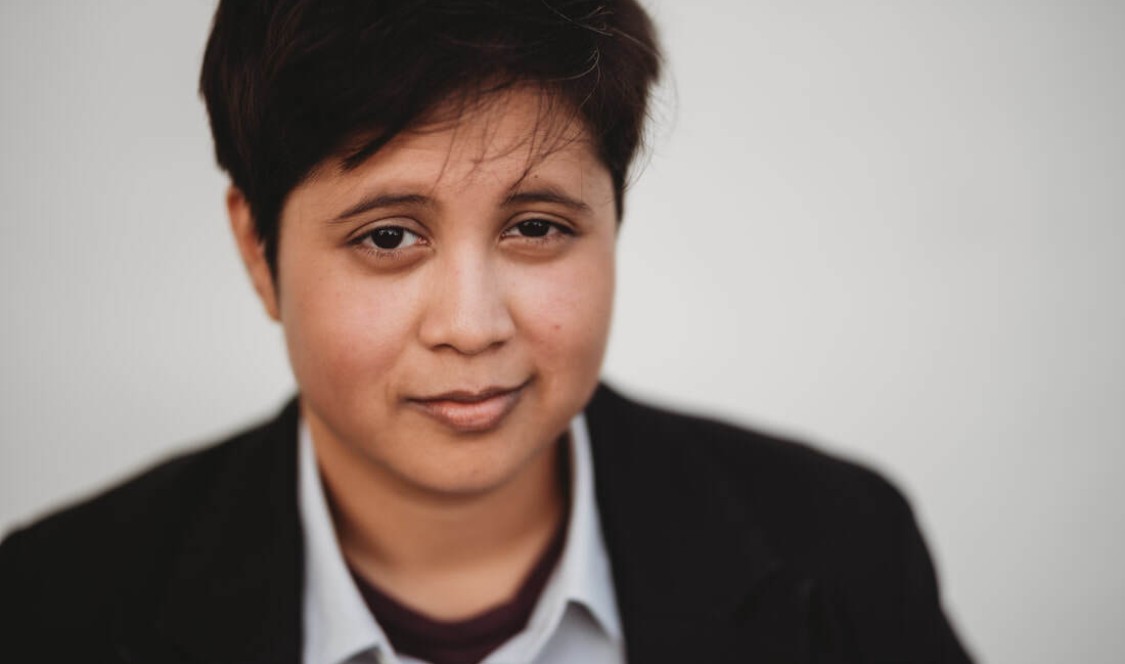Across the CMC curriculum, members of our faculty are meeting the challenge of these unprecedented and historic times, delivering exceptional coursework in a fully online modality for the fall semester. In our Academic Innovations series of faculty Q&As, professors share their curricular highlights, best practices, and how students are helping to shape virtual learning for a memorable, collaborative academic experience.
Rima Basu, assistant professor of philosophy, is teaching "The Challenge of Evil," "Advanced Seminar: Belief, Evidence, and Agency," and "Structural Injustice."
What are you most excited about reimagining in terms of a fall teaching experience for students?

I’ve never been one to follow the “sage on the stage” model of standing at the front of the room and lecturing to students. All of my classes are seminar-style and discussion-heavy, and I’ve found that Zoom can be a great equalizer in setting up students to be comfortable speaking up and contributing their own thoughts. My box is the same size as everyone else’s and given the small class sizes at CMC, everyone is literally on the same page. This puts us all on equal-footing in treating the class as a collaborative exercise in learning. One of my classes, The Challenge of Evil, is structured like a role-playing game, and I’m excited about incorporating more role-playing game elements. The goal is to build community through overcoming the trials and tribulations of a campaign, and also explore topics of human nature, the conflict between good and evil, and structural impediments to living a flourishing life. I’m also teaching a new and experimental interdisciplinary class called Structural Injustice. The course addresses the critical questions of our time. It will be team-based, interdisciplinary, student-driven, and disseminate findings in non-traditional formats, including podcasts, videos, and artwork. There will be guest speakers, and at least one role-playing game. I’m most excited about the actual syllabus - including determining readings and assignments – because it will be the first group project for the class.
What do you think students will enjoy most about your fall courses? Gain the greatest benefits from virtually?
I’ve structured my freshman humanities seminar in the style of a tabletop role-playing game. Every student fills out a character sheet at the start of the semester, and it gets updated each time their stats improve and they level up. I don’t assume familiarity with any of the mechanics of a role-playing game, but the framework of skills, experience points, and leveling up is familiar to most students. Such a structure offers more freedom with respect to what assignments and what type of assignments students complete. Instead of final papers, students have in the past created podcasts, explainer videos, rap battles between philosophers, artwork, etc. As the professor (or the Dungeon Master in the D&D analogy), I set the structure and put some obstacles in their path, but like in a role-playing game, how they choose to overcome those obstacles is up to them and limited only by what they can imagine (within reason, i.e., within the mechanics of the world). I have also incorporated creative assignments as alternatives to the traditional paper in my other courses and as I’ve been rethinking things for an online-only environment these sorts of alternative assignments are a way to break the monotony of life during a pandemic. You can’t go anywhere and every day is more of the same. For this reason, I’m also incorporating more opportunities for collaborative projects. Also, since we’ll be virtual, my dog will probably make an appearance in every class.

What kinds of discussions are you having with students? Has that shaped or influenced how you are thinking about your courses?
People are really afraid right now, and with good reason. COVID-19 is no joke. My conversations with students have been honest. We are all struggling. Just as I’ve asked students to be flexible with me, I’m implementing greater flexibility to make what may seem overwhelming feel more manageable. But, I should also note, that we all feel a bit unmoored right now, in a state of unease. That’s the feeling that sparks philosophical thinking. Our institutions have failed, so now how do we imagine something better? That’s what inspired me to create the new course Structural Injustice, that explores these questions of structural injustice.
How do you think CMC and its students are best prepared to adjust to virtual teaching? What gives you the greatest confidence in this semester?
CMC is the kind of school that really puts value on education and in hiring faculty who are not only excellent researchers but also excellent educators. All summer, faculty have been having discussions about pedagogy and what worked and didn’t work in the spring for preparation for the fall. We’ve been going to workshops, talking with consultants, and sharing best teaching practices. If I had to be facing the prospect of online-only instruction during a pandemic, I’m glad I get to do so at CMC where our class sizes are small so we can have in-depth synchronous discussions, and where I can get to know each and every one of my students.
Click here for a full list of curricular innovations from CMC faculty in the fall.
—Gilien Silsby

